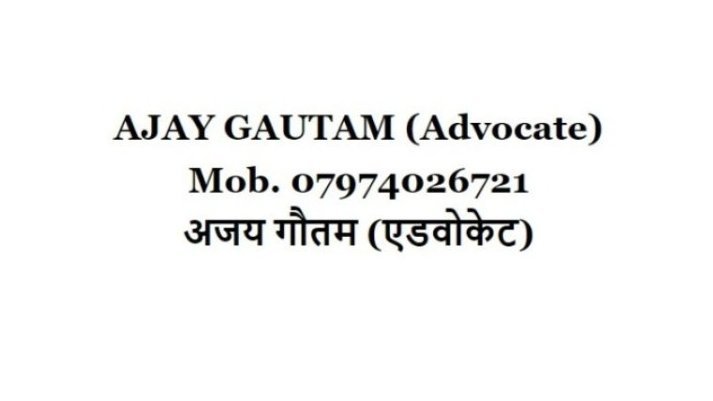An application for availing OTS would be processed only if it was accompanied by an upfront payment of 5 per cent of the outstanding dues
An application for availing One Time Settlement (OTS) will be processed only if it is accompanied by an upfront payment of 5 percent of the outstanding dues. The Supreme Court of India has upheld that any OTS application made without this mandatory upfront payment is incomplete in law and need not be processed by the bank or financial institution. Thus, the upfront payment of 5% is a foundational eligibility condition for consideration of the OTS application. Failure to deposit this amount disentitles the borrower from seeking the benefit under the OTS scheme and leads to outright rejection without even processing the application.
Details from Supreme Court Ruling
-
The Court emphasized that the OTS scheme is a concession, not a legal right, and benefits arise only upon strict compliance with scheme terms.
-
The mandatory 5% upfront payment must be deposited along with the OTS application.
-
Borrowers failing to provide this payment have their applications considered incomplete and not processed.
-
This ruling arose from a dispute involving State Bank of India’s (SBI) OTS 2020 Scheme, where a borrower failed to make the upfront payment, leading to rejection of the application.
Practical Implication
-
Any borrower seeking to avail OTS must prepare to deposit at least 5% of the outstanding dues as an upfront payment at the time of submitting the application.
-
Applications not accompanied by this payment will be summarily rejected.
-
This condition serves as a filter to ensure only serious applicants are considered for settlement.
The 5% upfront payment of outstanding dues is a mandatory precondition without which OTS applications are not processed, as reinforced by recent Supreme Court decisions and OTS scheme guidelines.
What if Bank Reject the OTS Proposal After depositing Upfront Payment 5% of the total outstanding dues.
Even after depositing the mandatory 5% upfront payment, a bank can reject the OTS application based on other criteria or discretion. The upfront payment does not ensure acceptance but is only a precondition for processing the application. Borrowers should be prepared for the possibility of rejection and understand it is within the bank’s rights to do so.
If a bank rejects an OTS (One Time Settlement) proposal even after the borrower has deposited the upfront payment of 5% of the total outstanding dues, several important points arise from recent legal rulings and banking practices:
Bank’s Right to Reject OTS Proposal
-
The bank retains the right to reject an OTS proposal even after the upfront payment is made. The OTS scheme is a concession granted by banks and is not a borrower’s legal right.
-
Rejection can occur on grounds such as non-compliance with other scheme conditions, past defaults, suppression of facts, ongoing recovery proceedings, or the bank’s assessment of the proposal’s viability.
-
The Supreme Court has clarified that eligibility and upfront payment do not guarantee acceptance of the proposal; the final decision rests with the bank which must fairly apply its mind.
Consequences for the Borrower
-
The upfront payment may be adjusted or retained by the bank as part of the settlement process or may be subject to terms in the OTS policy.
-
If the bank rejects the proposal, the borrower may continue under the normal recovery process, including legal proceedings for loan recovery.
-
The borrower may have the option to submit a fresh proposal or negotiate outside the current OTS scheme, but the acceptance is discretionary.
-
Courts generally will not intervene to compel acceptance of an OTS proposal once the bank exercises its discretion reasonably.
Practical Advice
-
Borrowers should fully understand the terms and conditions of the OTS scheme before making upfront payments.
-
Upfront payment does not grant automatic approval; large pending dues, legal history, or other factors may influence bank rejection.
-
Legal or alternate negotiation routes may be explored if the proposal is rejected despite upfront payment.
If the bank rejects the OTS (One-Time Settlement) proposal after you have deposited the 5% upfront payment, the treatment of that upfront payment generally depends on the bank’s specific policy and the terms mentioned in their OTS guidelines.
-
Upfront Payment as a Processing Fee
-
In many banks, the 5% upfront is considered a good-faith deposit or processing fee.
-
If the OTS is rejected, the bank may refund this amount, but some banks might deduct a small administrative fee before returning it.
-
-
Check the Terms & Conditions
-
Banks usually specify whether the 5% is refundable in the OTS application form or policy document.
-
If it is stated as refundable upon rejection, you should get the full 5% back.
-
If it is non-refundable, the bank can retain it even if your OTS is rejected.
-
-
Practical Steps
-
Keep a copy of the deposit receipt and the OTS application form.
-
Confirm with the bank in writing whether the upfront 5% is refundable in case of rejection.
-
If the bank refuses to refund and it was not clearly stated as non-refundable, you may have grounds to request a formal review.
-
Key Point: The refund depends entirely on the bank’s policy and the agreement you signed when submitting the OTS application.
